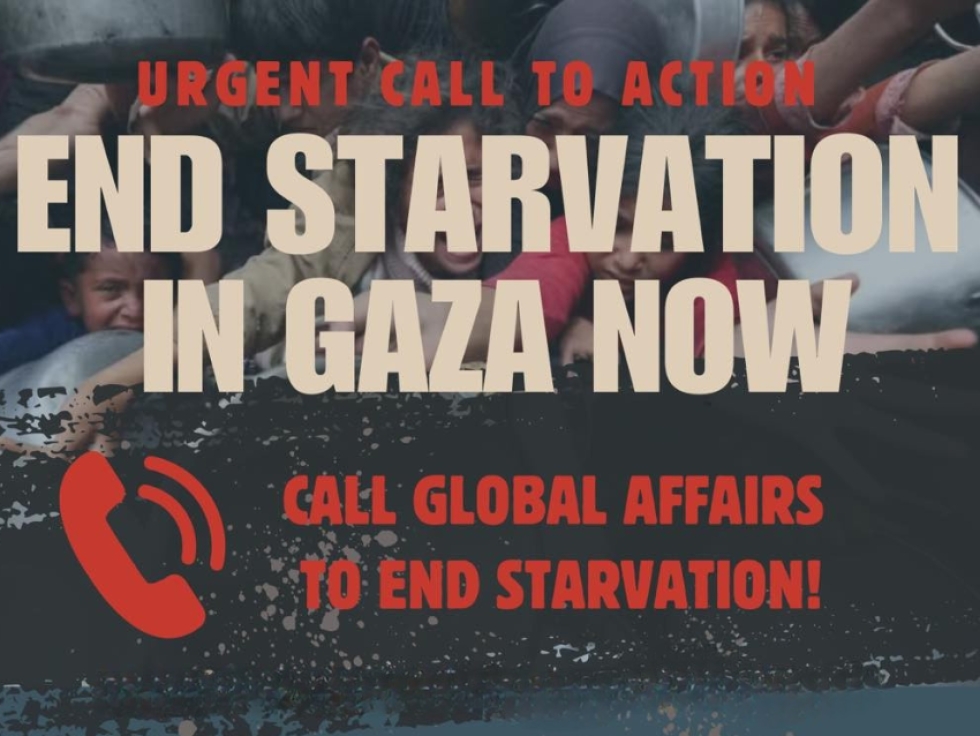stop the starvation in Gaza
To stop the starvation in Gaza, the international community must go beyond statements and take concrete, enforceable actions. Here’s what must be done in deeds, not just words:
1. Force Open Humanitarian Corridors
- Deploy international teams (e.g., UN, Red Crescent, neutral observers) to physically oversee and escort aid deliveries.
- Use peacekeeping forces or naval escorts to break the blockade if necessary, especially in coordination with Egypt and other bordering states.
- Establish air-drops or sea-routes of food, water, and medicine if land routes are blocked or shelled.
2. Sanctions and Embargoes on Israel
- Impose economic sanctions, including bans on military equipment and technology exports to Israel.
- Freeze assets of key Israeli political and military figures, including Netanyahu and Gallant.
- Suspend trade agreements with Israel (e.g., EU–Israel trade deals) until the starvation ends.
3. Prosecute War Crimes Immediately
- Support the ICC warrants for Netanyahu and other Israeli leaders accused of war crimes, including starvation as a method of war.
- National courts in Europe (under universal jurisdiction) should begin parallel prosecutions.
- Bar Israeli officials under investigation from traveling internationally.
4. Cut Diplomatic Ties or Downgrade Relations
- Recall ambassadors and close embassies to pressure Israel diplomatically.
- Deny Israeli officials access to international platforms like the UN General Assembly.
- Suspend Israel from international organizations (e.g., FIFA, OECD) to isolate it globally.
5. Hold the United States and Israel’s Allies Accountable
- Pressure the U.S., Germany, and others to cease arms shipments and funding that enable the siege.
- Boycott complicity — target banks, corporations, and governments aiding the blockade.
- Use international forums (G20, Arab League, African Union) to publicly condemn U.S. and Western complicity and push for alignment with international law.
6. Mobilize Global Civil Society and Boycotts
- Support and expand the Boycott, Divestment, and Sanctions (BDS) movement.
- Pressure humanitarian organizations to break silence and take action, including refusing to comply with Israel’s aid restrictions.
- Organize global protest movements, port blockades, and academic/cultural boycotts.
7. Force UN Action Under Chapter VII
- Call for a UN Security Council resolution under Chapter VII of the UN Charter (binding and enforceable by force).
- If vetoed (likely by the U.S.), invoke the “Uniting for Peace” resolution at the UN General Assembly to authorize emergency humanitarian intervention.
To stop starvation in Gaza, the world must treat it not as a political inconvenience, but as an ongoing atrocity.
That means intervening to feed the starving, isolating those responsible, and applying real-world consequences—diplomatically, economically, and legally—until the siege ends.
If all the above measures fail to stop Israel’s atrocities—particularly the starvation of civilians—then the situation demands even stronger, more urgent, and direct intervention, including actions that challenge traditional geopolitical norms.
Here’s what must follow if Israel still refuses to comply with international law and humanitarian pressure:
1. Unilateral and Regional Humanitarian Intervention
- Neighboring countries (e.g., Egypt, Jordan, Turkey, or Iran) could intervene militarily or logistically to establish safe zones or aid corridors, even without UN authorization if genocide is clearly documented.
- Precedents exist: NATO intervened in Kosovo without UN approval under humanitarian grounds. The same logic applies here, under the doctrine of Responsibility to Protect (R2P).
2. International Naval/Air Convoys to Break the Siege
- Form an international coalition (not necessarily UN-based) to escort ships or aircraft delivering food and medicine to Gaza, even if Israel attempts to block them.
- Like the Freedom Flotilla attempts of the past—but backed by state-level military deterrence from nations such as South Africa, Brazil, Malaysia, or Arab states.
3. Global Civil Disobedience and Economic Warfare
- A worldwide grassroots shutdown: student strikes, labor unions blocking Israeli goods, port workers refusing to load arms shipments, banks being boycotted for financing Israeli arms.
- Treat Israel like apartheid South Africa in the 1980s—full-scale international isolation until its regime faces internal collapse or transformation.
4. Emergency Tribunal or Special Court
- If the ICC is ineffective or too slow, establish a special international tribunal (like the one for Rwanda or Yugoslavia) to try Israeli leaders for genocide and starvation as war crimes.
- Countries can support this even outside the UN, forming coalitions of legal states willing to prosecute.
5. Suspend or Expel Israel from the UN and International Bodies
- UN General Assembly can suspend or expel Israel from key forums—political, cultural, scientific, and humanitarian—as was done to apartheid South Africa.
- This includes cutting Israel off from SWIFT banking, scientific cooperation, and airspace access.
6. Rebuild Palestinian Defense Capacity via International Backing
- If diplomacy fails and genocide continues, some states may legally justify arming Palestinian groups or government structures under the principle of collective self-defense.
- Although controversial, self-defense against genocide is protected under international law.
7. Expose and Prosecute Complicit States
- Hold the U.S., Germany, and other enablers accountable in international courts and public tribunals.
- Investigate and prosecute officials in those countries for aiding and abetting genocide, including corporate and military lobbies.
If All Else Fails — Name It Clearly
If even these steps are not taken or fail, then the world must stop pretending it’s a failed peace process and admit:
A modern genocide is occurring in real time, and powerful nations are letting it happen.
This is not about diplomacy anymore—it’s about the collapse of the international legal order and the normalization of barbarism.



